The progress meeting for the National Natural Science Foundation of China (NSFC) Special Project "Research on the Functional Positioning, Operational Mechanisms, and Governance Mechanisms of Data Trading Venues" (Approval No. 72442030), under the NSFC's "Institutional Design and Key Technologies of Data Market" program led by Wuhan University, was convened on January 17th, 2025.
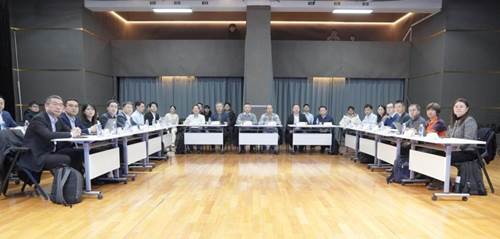
The meeting was joined by Lei Wang, Deputy Director of the Data Market Division, Policy and Planning Department, National Data Administration, who provided guidance. Attendees and expert panelists included:
l Wei Lu, Vice President of Wuhan University
l Chuanfu Chen, Distinguished Professor of Humanities and Social Sciences, Wuhan University
l Zhengbiao Nie, Director of the Strategic Planning Division, National Development and Reform Commission (NDRC) Training Center
l Gang Li, Director of Wuhan Institute of Data Intelligence
l Dong Yang, Professor at Law School, Renmin University of China
l Haipeng Yao, Professor at the School of Information and Communication Engineering, Beijing University of Posts and Telecommunications
l Junjie Wu, Professor at the School of Economics and Management, Beihang University
l Haihong Feng, Research Fellow at the Institutes of Science and Development, Chinese Academy of Sciences
l Yikun Xia, Professor at the Data Management Innovation Research Center, Nanjing University
l Ruixian Yang, Dean of the School of Information Management, Zhengzhou University
l Guo Li, Professor at the School of Management, Beijing Institute of Technology
l Zhongjun Wang, Editor-in-Chief of Information Studies: Theory & Application
Project participants included:
l Project Leader Jiang Wu, Professor at the School of Information Management, Wuhan University
l Mingjun Guo, Director of the Computing Economy Division, Big Data Development Department, National Information Center
l Zhenyang Lin and Le Du, Senior Researchers at Wuhan Institute of Data Intelligence and core members from over 10 participating institutions
The meeting was chaired by Wenqi Du, Deputy Director of the Wuhan University Research Institute of Scientific and Technological Development.
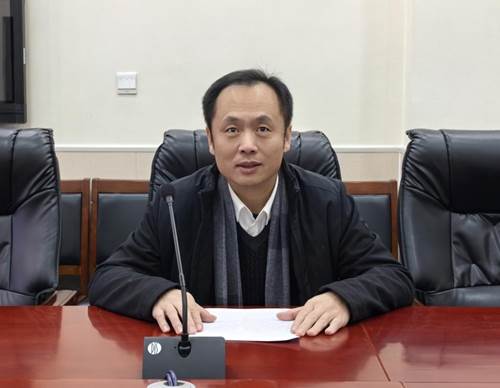
Wei Lu, on behalf of Wuhan University, extended a warm welcome and sincere gratitude to all participating guests and experts. He emphasized that the successful approval of this project not only aligns with the urgent demands of market-oriented reforms in data element institutionalization, but also addresses critical priorities in China's national digital economy strategy. Furthermore, it serves as strong recognition of Wuhan University's research capabilities and organizational competence in the field of information resource management.
"This approval injects powerful momentum for our research team to deepen scientific innovation and better serve national strategic needs," Wei Lu stated. "Wuhan University will provide full support for the project's advancement, ensuring high-quality research conditions and comprehensive institutional guarantees throughout its implementation."

Gang Li, Director of the Wuhan Institute of Data Intelligence, underscored the institute's commitment as a collaborative partner: "As a key implementing institution, we will leverage our core strengths to deliver robust support through fundamental theoretical research in data intelligence, breakthroughs in core technologies development, data intelligence R&D platforms optimization, and computing power and algorithmic support infrastructure. The Institute will maintain close collaboration with all project teams to ensure the successful attainment of research objectives." Gang Li affirmed.
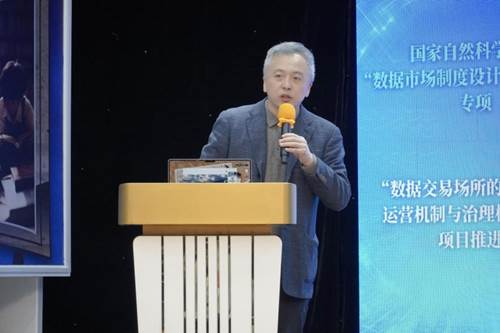
Jiang Wu delivered a comprehensive presentation covering academic rationale and key innovations, project objectives and overarching framework, research components and technical roadmap, team composition and implementation plan, timeline and anticipated deliverables.
The advisory panel contributed constructive insights across critical dimensions, such as development models for data trading venues, market positioning strategies, sustainable business model exploration, boundary definition in data transactions, technical safeguards implementation, ownership clarification mechanisms, data valuation frameworks, pricing model benchmarking and value assessment methodologies. These expert recommendations have charted a clear pathway for advancing the project with academic rigor and practical relevance.
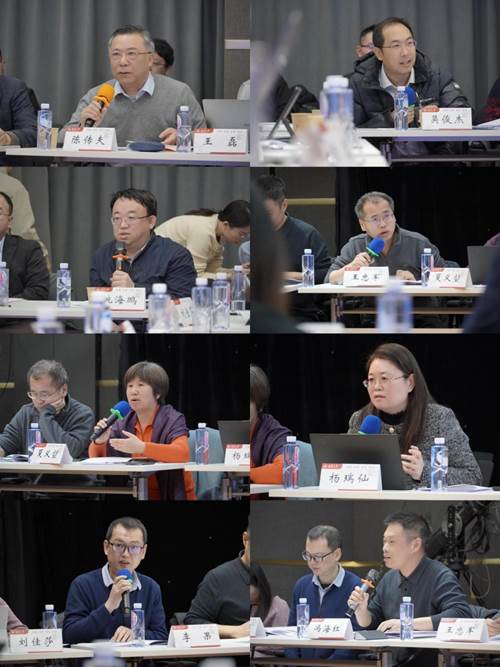
The project consortium is jointly led by three core institutions: Wuhan University, National Information Center and Wuhan Institute of Data Intelligence. And it was supported by a consortium of industry and research institutions including:
l Shenzhen Data Exchange
l Beijing International Big Data Exchange Co., Ltd.
l Guiyang Big Data Exchange
l Fujian Big Data Trading Co., Ltd.
l Zhengzhou Data Trading Center
l East China Jiangsu Big Data Exchange
l Wuxi Big Data Trading Co., Ltd. (Jiangsu)
l iSoftStone Smart Technology Co., Ltd.
l Wuhan East Lake Big Data Inc.
l Hefei Data Space Research Institute (National Science Center)
l Shanghai Data Exchange
l Hubei Data Group
At the ceremony, Wenqi Du and Jiang Wu presented collaboration certificates to participating institutions.
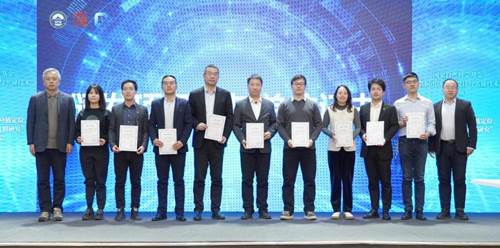
The convening of this meeting marks the official commencement of the project's research work. The project team will address critical bottleneck challenges currently faced in China's data exchange venue development, including decentralized layouts, inter-connectivity difficulties, and low transaction activity. The project team propose establishing an integrated ecosystem framework to clarify the functional positioning of data exchange venues. The research will delve into key aspects such as interoperability mechanisms, strategic interactions, and revenue generation strategies among data trading platforms. A comprehensive analysis will be conducted on governance frameworks for these venues, aiming to enhance operational efficiency and governance standards. This initiative seeks to establish a solid theoretical foundation and provide scientific decision-making support for deepening the market-oriented allocation reform of data elements. Ultimately, the project endeavors to facilitate the healthy and prosperous development of China's data element market through optimized institutional arrangements and innovative operational paradigms.